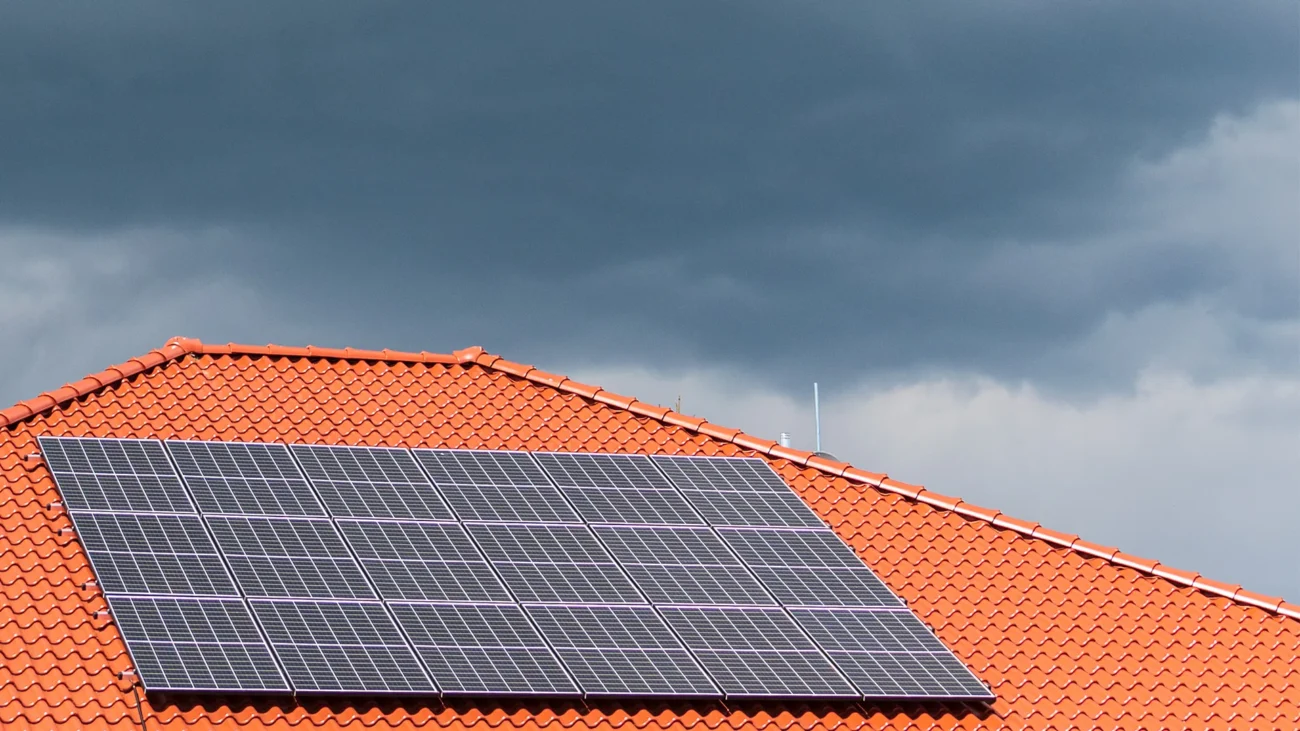Do Solar Panels Still Work When There's No Sun?

Do Solar Panels Still Work When There's No Sun?
This is a question many people wonder about, especially those living in tropical countries like ours where it rains frequently.
The simple answer is: Yes, solar panels still work! Even on days without bright sunshine, but they'll produce much less electricity. They can only generate about 10-25% of their capacity on heavily overcast days, and they completely stop working at night.
Table of Contents
How Do Solar Panels Work When There's No Sun?
Actually, solar panels don't need blazing sunshine! They just need light containing photons to make the photovoltaic cells work. Think about it - even on cloudy days or when it's drizzling, sunlight still penetrates through the clouds, just not as clearly.
Let's see how well solar panels perform in different weather conditions:
- Sunny days: 100% full power!
- Partly cloudy days: 80-90% still pretty good
- Heavy clouds: 25-50% noticeably reduced
- Rainy, overcast days: 10-25% very little, but still something
- Nighttime: 0% completely stops (no light, obviously)

What Affects Solar Panel Performance on Cloudy Days?
1. How Strong Is the Light?
It's simple - the stronger the light, the better solar panels work. Even on cloudy days, there's still diffused light that keeps them running.
2. What Kind of Clouds?
This matters a lot!
- Thin clouds: Minimal impact, still okay
- Thick, heavy clouds: This is what reduces efficiency the most
- Storm clouds: Significantly reduced, but still works somewhat
3. What Type of Solar Panel?
Different types perform differently:
- Monocrystalline: Great in low-light conditions
- Polycrystalline: Efficiency drops significantly in low light
- Thin Film: The low-light champion! Works best with diffused light
Smart Tips to Make Solar Panels Work Better on Cloudy Days
1. Have Backup Batteries.
This is the key trick! Store energy when production is high, use it when production is low. It's like saving money in the bank when you have it, to use when you're short. Try using a Solar Battery Sizing Calculator to see what battery size you need
2. Choose Your Solar Panels Wisely
Don't just pick any panels - choose ones that work well in low light. And calculate properly how many panels you need. Check out this Solar panel calculator - it'll help a lot.
3. Install Them Right
Angle matters! Install them to catch the maximum light possible, even when light is scarce.
Solutions for Areas with Little Sunshine
Hybrid Solar System
Hybrid systems that combine solar panels with other energy sources like:
- Diesel generators
- Wind turbines
- Main electrical grid connection
Grid-Tie with Net Metering
Systems connected to the main electrical grid can sell excess power back on high-production days and use grid power on low-production days.
How About Thailand? It Rains Often - Can You Still Use Solar Panels?
Many people worry about this! Actually, Thailand is great for solar panels, even though it rains frequently. We also get plenty of sunshine.
Looking at real statistics:
- Heavy rain season (June-October): Still produces 60-70% of electricity - not bad at all!
- Sunny season (November-April): Full capacity 100%
On average, we get about 4.5-5.5 hours of sunlight per day, even during rainy season.
Questions People Often Ask
Yes! But the electricity output is reduced to about 10-25% of full capacity.
No, they really don't work at night - no sunlight! You need to rely on batteries or regular household electricity.
Absolutely perfect! We have plenty of sun, averaging 4.5-5.5 hours of sunlight per day even during rainy season.
Simple Summary
Solar panels work even without sun! They just produce less electricity. Good planning means accounting for both high and low sun days. Having backup batteries makes it even safer.
Investing in solar panels is still worth it, even though we have frequent rain. In the long run, you save a lot on electricity bills and help the planet too.
If you think about it, even on completely overcast days, we can still see light, right? That means there's still light available, and solar panels can still work!
200,000 Baht tax exemption
The Cabinet has approved tax measures to promote renewable energy, specifically targeting installations! Solar RooftopThis measure's primary goal is to lower electricity costs for both the public and businesses, while also encouraging greater investment in clean energy.



